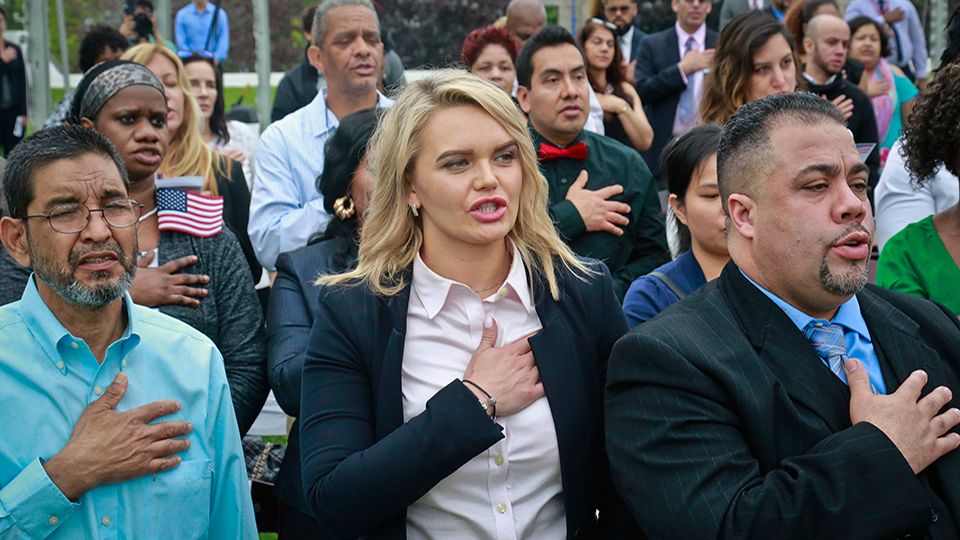The Biden administration has proposed a new rule that would limit the government’s use of public benefits as a consideration when noncitizens apply for U.S. residency, after a Trump-era rule led to denials based on whether a person was likely to use things like food stamps and Medicaid.
The proposal from the Department of Homeland Security would roll back the types of assistance immigration officers can consider when evaluating immigrants for a green card and deciding whether they’ll become a “public charge.”
Under the new proposal, the definition of public charge would become “likely to become primarily dependent on the government for subsistence,” and officers can consider potential need for cash benefits like Supplemental Security Income (SSI), Temporary Assistance for Needy Families (TANF) and long-term institutionalization at government expense.
In 2019, Trump administration officials had broadened the rule to include non cash benefits like food stamps, Medicaid, the Children’s Health Insurance Program (CHIP), housing benefits and transportation vouchers.
Advocates said this amounted to a wealth test for immigrants and discouraged noncitizens applying for food and medical programs they needed and were eligible for, therefore risking worse health outcomes.
Under U.S. law, if immigration officials determine someone is likely to become a public charge, they can deny them a green card.
“The 2019 public charge rule was not consistent with our nation’s values,” said DHS Secretary Alejandro Mayorkas in a statement. “Under this proposed rule, we will return to the historical understanding of the term ‘public charge’ and individuals will not be penalized for choosing to access the health benefits and other supplemental government services available to them.”
DHS’ new proposal announced Thursday would officially revert the public charge rule back to the definition first laid out in the 1990s.
The Trump-era public charge rule had already been knocked down last March, when Biden officials withdrew the previous administration’s appeal to keep the rule in place amid various legal battles over the regulation. All parties involved agreed to dismiss the case, in one of many moves the Biden administration made to undo Trump immigration policies.
But the new proposal would codify the rollback of the public charge definition. DHS will seek public comment on the rule for 60 days once it’s published.



